September 17, 2024
Celebrating Hispanic Heritage Month
To kick off Hispanic Heritage Month, KO hosted an event on September 13 featuring salsa instructor Joey Huertas and DJ Anodrac. The 60 attendees played dominoes and whiffle ball, feasted on Latino food from El Sitio, and donated food from Cora Cora and Coyote Flaco. KO started a new affinity group for Latino students, HOLAS (Hispanic Organization of Latin American Students), aiming to bring cultural awareness of the Latine community at KO. The fiesta was a collective effort organized by the students and faculty members Juan Martinez, Carolina Croes, Gene Cassidy, Felicia Velez, and Ron Garcia. Velez was the driving force behind the celebration. Upper School Spanish teacher Juan Garcia said, “She had this idea, and then she kept pushing, poking, and making sure it happened.”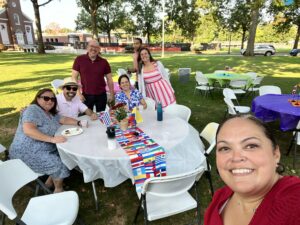
During a recent Hispanic Heritage Month assembly, Spanish teacher Juan Martinez delivered a moving and heartfelt speech reflecting on his personal journey and the significance of this special month. Garcia used his background to illustrate the deep cultural meaning behind Hispanic Heritage Month.
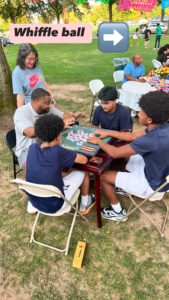
Martinez recalled memories of growing up in his household during Hispanic Heritage Month. He shared how each year, his family would gather to celebrate their heritage, connecting through food, music, and shared traditions.
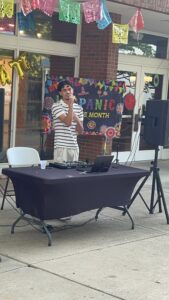
“As a child growing up in our house, whenever this month came around, we would gather in our backyard. It sounded just like this— the sounds, the flavors, the feeling. It was exactly how it was when I was growing up,” Martinez said. “It was a family getting together to celebrate who we are.”
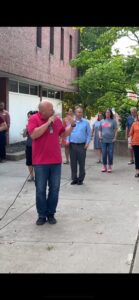
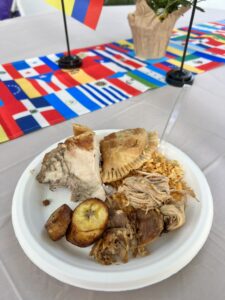
Martinez delved into the historical roots of Hispanic Heritage Month, explaining its significance in both U.S. and global contexts. He reminded the audience that the month begins on September 15th because of the Central American nations that declared independence from Spain on that day, followed by Mexico’s declaration on September 16th.
He also explained why the month ends on October 15th, touching on the significance of October 12th, which is celebrated in various ways across the Western Hemisphere. “In some countries, it’s known as Dia de la Raza, which means Day of the People,” Juan explained. “It celebrates the blending of cultures and the shared history of Spanish-speaking countries.”
He further discussed how Hispanic Heritage Week, first established by President Lyndon B. Johnson in the 1960s, was extended to a full month by President Ronald Reagan in the 1980s, cementing it as a time for reflection and celebration in the U.S.
Martinez touched on the importance of recognizing the Spanish language and the growing Hispanic population in the U.S. “If you gathered all the Spanish speakers in the United States, you would have about 60 million people,” he explained. “That would make the U.S. the second-largest Spanish-speaking country in the world, behind Mexico.”
He also highlighted the economic power of the Hispanic population, noting that if they were a separate economy, they would rank as the fifth-largest in the world. “That’s a huge amount of purchasing power,” he said. “And it shows how much things have changed—when I was growing up, it wasn’t like that.”
Martinez’s reflection on his own journey—from working in the fields of Central California to becoming an educated professional—demonstrated the progress and opportunities available within the Hispanic community. He noted that this transformation is mirrored in the growth of the Hispanic population across the country.
In closing, Martinez spoke of the importance of being recognized and celebrated. “We’ve been here since before the founding of this country,” he reminded the audience. “And we will continue to be here, deep into the future.”
To further honor Hispanic figures, Martinez invited Aniajah Sanchez ’28 to the stage to speak about a personal hero, Puerto Rican baseball player Roberto Clemente. She shared how Clemente’s legacy had a lasting impact on her family, especially her grandfather, who deeply admired the athlete for both his athletic skill and humanitarian work.
